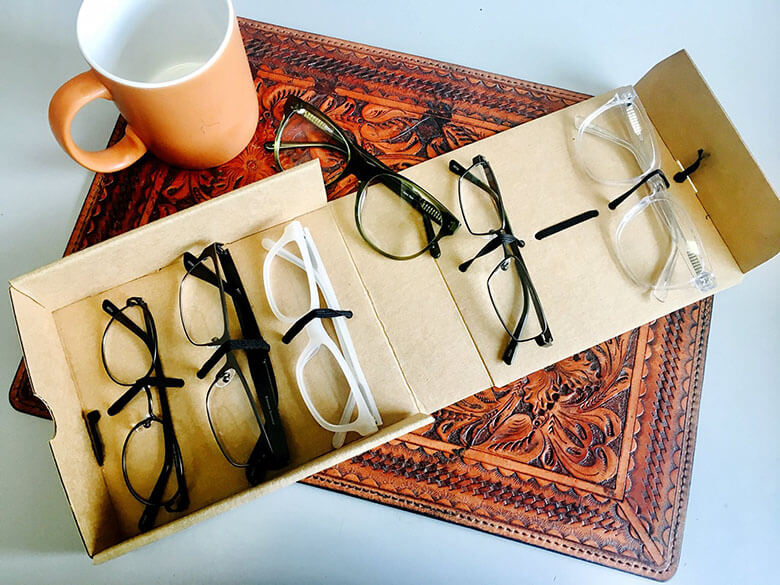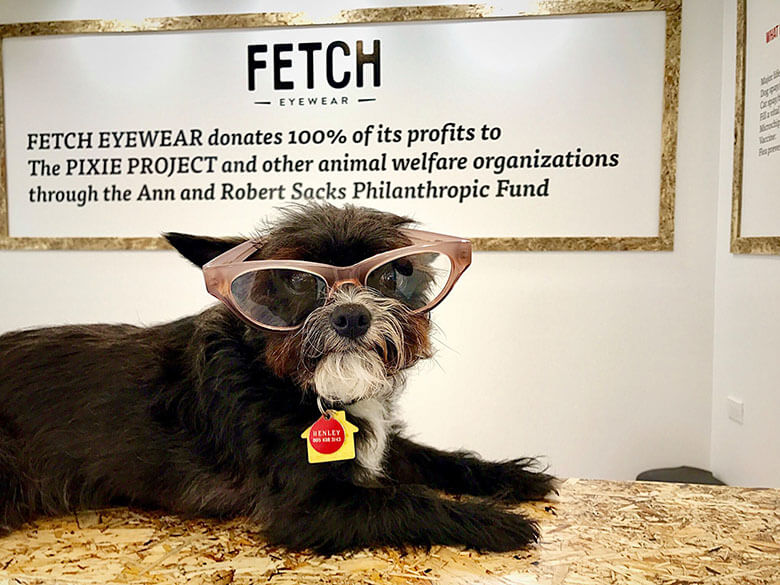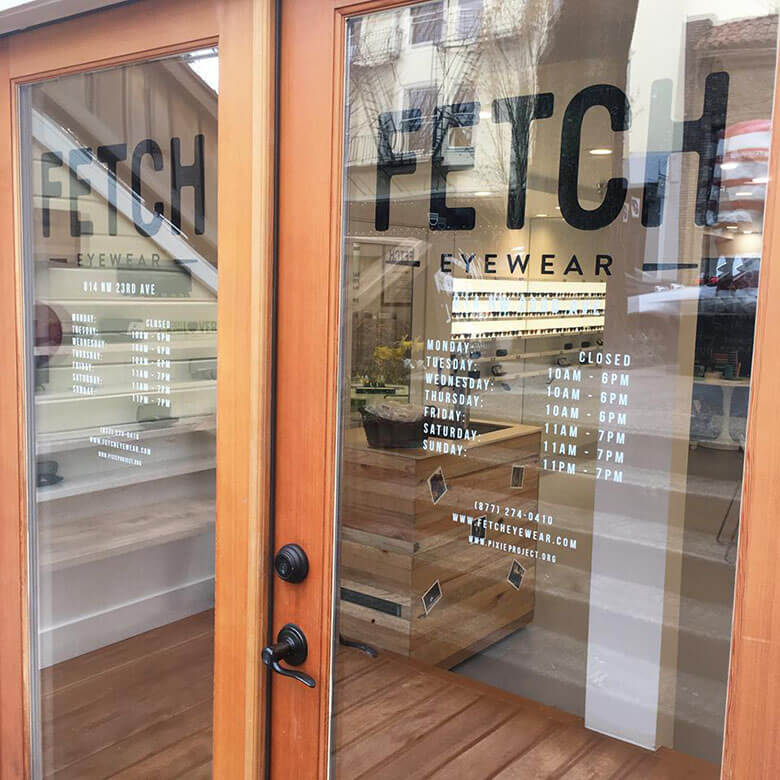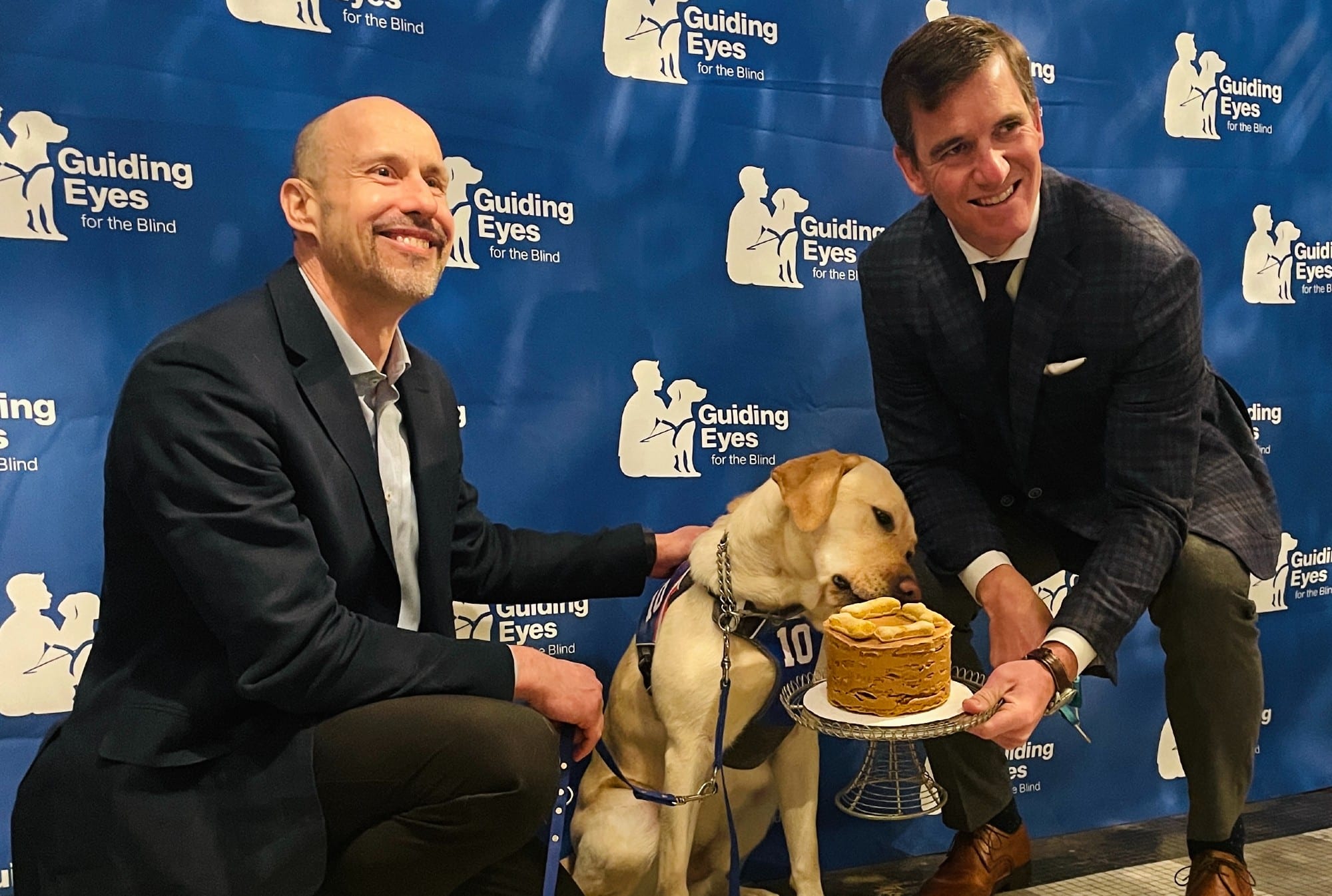Amy Sacks founded Fetch Eyewear with the idea of making durable, classic glasses with a modern twist at affordable prices and a lifetime warranty to boot. But while there are other companies out there with similar offerings – Warby Parker, Zenni Optical and Coastal, to name a few – Sacks wanted her company to go above and beyond helping people find inexpensive glasses; she wanted to give back to the animal world, hence the name Fetch Eyewear.
Launched in 2004 (originally called Ann Sacks Eyewear), the company offers a wide assortment of prescription frames, sunglasses and reading glasses for both men and women with durable frames and modern colors and materials in classic shapes.
The online boutique offers a “Try at Home” program where you can choose five frames you like, try them on at home and then return them within five days using the enclosed prepaid return shipping label. Customers can order the winners online.
Related: Coffee Company Grounds & Hounds Wants You to Wake, Brew, Rescue and Repeat
Starting at $95, all of the profits of Fetch Eyewear are donated to The Pixie Project, an animal-welfare organization, started by Sacks and her husband Robert, and other related organizations created by the Sacks’ philanthropic fund.
The idea to blend these two passions came after Sacks wanted to change the face of modern philanthropy. She believes that “buying things you need should support the things you love,” according to the Fetch website.
And that she has done.
The Pixie Project launched in Portland, Oregon in 2007, and believes that no rescue group can change the world alone. It partners with county shelters across the U.S. to help animals get a second chance at a forever home and to ensure these animals are receiving the care they need. It works to find the perfect match between pets and potential adopters, and ensure volunteers are available to answer questions and offer advice and support after the animal goes home.
In 2012, The Pixie Project expanded its facility from 1,500 square feet to 5,000 square feet. To date, the organization has facilitated more than 1,500 successful adoptions.
Donations from Fetch to the Ann & Robert Sacks Foundation provide approximately one quarter of Pixie’s annual budget. “As profits at Fetch increase, they will be forwarded to the foundation for additional contributions to animal welfare,” says Sacks.
Two years ago, they added a low-income clinic for spay and neuter work and surgeries such as wound repair and dental work. “We have been able to keep families together who would have no other choice but to surrender their beloved pet due to financial constraints,” Sacks says. “We’re very proud of this work which benefits both people and pets.”
Related: Thanks to a Dog Company, Survivors of Human Trafficking Get a Second Chance
Their daughter, Amy, is the executive director of the Pixie Project and is in charge of both the shelter and the vet clinic.
“Our mission is to relieve over-crowded shelters, some of which are in rural counties surrounding Portland, but we also receive transfers of dogs from shelters in Texas, where the adoption rates are still very low,” Sacks says.
This fall, the Sackses will attend the first meeting hosted by the Paul Newman Foundation for a small group of U.S. companies that donate 100 percent of profits to charity.
“Because of the growing number of companies that merge ‘social mission’ with the sale of products, it is becoming increasingly important to differentiate companies that market philanthropy from those which are 100 percent dedicated to philanthropy,” says Sacks.
Sacks notes that working hard to help animals is extremely gratifying. “Our family is optimistic about animal welfare improvements in the coming years,” she says.
When she travels to New York City for business, she always photographs people walking their dogs in various neighborhoods. “It is heartwarming to see the number of young fashionable people who have chosen the adoption option,” she says.
She is also impressed with the efforts to help stray cats and says she’s seen a noticeable progress.
“These are all great signs of how improvement can occur, and I believe that young people will continue to lead this change,” she says.
Related: An Inside Look at What It’s Like to Run a Rescue


























